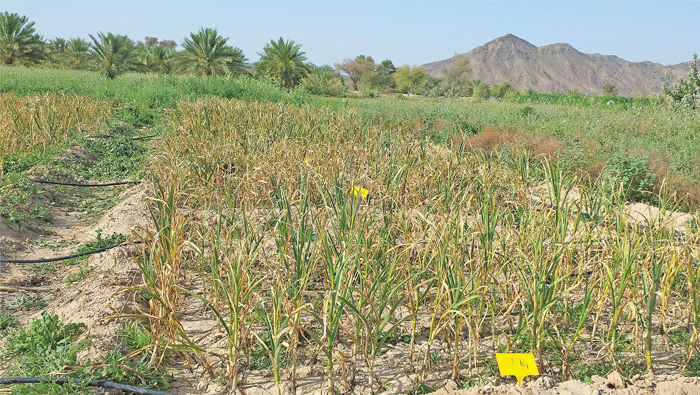

Muscat: The Director General of the for Food Safety and Quality Centre (FSQC), Dr. Hussein bin Sameh Al-Masrouri, said that farms that produce agricultural products, as well as those that raise livestock for the purpose of trade, are spreading widely in the Sultanate of Oman. Therefore, joint work between the centre and the directorates of agricultural and livestock development to ensure good hygienic practices is a must.
During his exclusive interview with “Al-Shabiba” radio, through the “Ma’a Al-Shabiba” show, Al-Masrouri said that these authorities periodically withdraw samples from farms and send them to the Central Laboratory for Food Safety or the Animal Health Laboratory and the Phytosanitary Laboratory or the private laboratories concerned with this aspect and do the needful in this regard.
Dr. Hussein Al-Masrouri explained that food products are classified according to their risk, as they contain high-risk, medium-risk and low-risk products. The percentage of the number of samples drawn from various food products is based on the degree of risk.
The Food Safety and Quality Centre(FSQC) has many specialisations, including setting policies, legislation, laws, specifications and standards for food and supervising them in cooperation with the concerned authorities. It is also entrusted with monitoring border crossings, working to rehabilitate food establishments inside the Sultanate of Oman and approving international food establishments to ensure food safety.
16 private laboratories in Oman for food control
The Director General of the Food Safety and Quality Centre, Dr. Hussein bin Sameh Al-Masrouri, revealed that the centre works to empower the private sector and partner with it through cooperation with laboratories.
During his exclusive interview with “Al-Shabiba” radio, through the “Ma’a Al-Shabiba” show, Al-Masrouri said that there are currently about 16 food laboratories registered with the Center. “Out of these laboratories, 13 have obtained the international accreditation certificate IOS17025. This guarantees the quality of services provided in these laboratories. Currently, there are 3 laboratories under registration,” he said.
“There are also many governmental laboratories that cooperate with the Food Safety and Quality Centre, as well as a reference laboratory and another laboratory located in the Fish Quality Control Centre, in addition to 9 sub-laboratories for the municipal sector in the governorates, which are also concerned with examining food products,” he added.
Dr. Hussein Al-Masrouri explained that the risk system for controlling the safety of products, which takes place through 3 stages, starts outside the country by trying to prevent the risk from reaching the Sultanate. This is fulfilled by approving foreign food establishments and approving laboratories with which the centre deals outside the Sultanate. As for the second stage, it is inside the border crossings, by filtering to reduce unhealthy food, through inspection, control and sampling to ensure the safety of products.
As for the last stage, which is the stage of products reaching the market, it is concerned with monitoring, responding, and trying to extrapolate what happens to some products. This stage is the role of the Risk Assessment Department. In this stage, the Center’s partnership with the municipalities sector begins after the product enters the markets. Here comes the role of the municipalities sector in controlling products inside markets and shops, as well as during transportation and storage, with a participatory and complementary relationship with the Food Safety and Quality Center.
The centre was established in 2019 and at that time was affiliated with the Ministry of Regional Municipalities and Water Resources. After restructuring some ministries in 2020, the Food Safety and Quality Centre became affiliated to the Ministry of Agriculture, Fisheries and Water Resources.